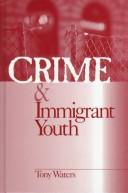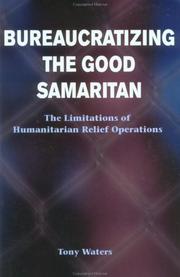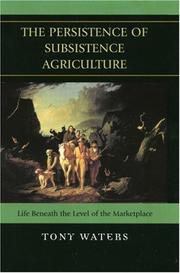| Listing 1 - 10 of 12 | << page >> |
Sort by
|

ISBN: 0761916857 1322418381 145226337X 9781452263373 9781452232287 1452232288 9780761916840 0761916849 9780761916857 9781322418384 Year: 1999 Publisher: London [etc.] : Sage Publications,
Abstract | Keywords | Export | Availability | Bookmark
 Loading...
Loading...Choose an application
- Reference Manager
- EndNote
- RefWorks (Direct export to RefWorks)
Crime and Immigrant Youth is a study of migration as a process that sometimes leads to youthful crime beyond the norms of either the home or host culture.
Immigrants. --- Juvenile delinquency. --- Social conditions. --- Teenage immigrants. --- Juvenile delinquents --- Teenage immigrants --- Social Welfare & Social Work --- Social Sciences --- Criminology, Penology & Juvenile Delinquency --- Immigrant teenagers --- Immigrant youth --- Immigrants --- United States --- Démographie --- Demography --- Criminalité --- Criminologie --- Méthodologie --- Criminalité --- Démographie --- Méthodologie --- Jeunes immigres --- Politique criminelle --- United states

ISBN: 0813367905 9780813367903 Year: 2001 Publisher: Boulder, Colo. Westview
Abstract | Keywords | Export | Availability | Bookmark
 Loading...
Loading...Choose an application
- Reference Manager
- EndNote
- RefWorks (Direct export to RefWorks)
Refugees --- Humanitarian assistance --- Bureaucracy --- International cooperation --- Migration. Refugees --- International movements --- Social organizations --- Development aid. Development cooperation --- Great Lakes Region [Africa] --- Refugees - International cooperation --- Refugees - Rwanda --- Refugees - Tanzania

ISBN: 9780739107683 0739107682 Year: 2006 Publisher: Lanham (Md.) : Lexington Books,
Abstract | Keywords | Export | Availability | Bookmark
 Loading...
Loading...Choose an application
- Reference Manager
- EndNote
- RefWorks (Direct export to RefWorks)
Agriculture --- Farmers --- Peasantry. --- Peasants. --- Subsistence economy. --- Economic aspects. --- Economic conditions.
Book
ISBN: 9780615732503 061573250X Year: 2013 Publisher: [Solon, Ohio] : Swagelok Co.,
Abstract | Keywords | Export | Availability | Bookmark
 Loading...
Loading...Choose an application
- Reference Manager
- EndNote
- RefWorks (Direct export to RefWorks)
Chemical apparatus --- Chemical engineering --- Design and construction.
Book
ISBN: 111963301X 9781119633006 1119633001 9781119632993 1119632994 9781119633013 Year: 2020 Publisher: Hoboken, NJ, USA Wiley
Abstract | Keywords | Export | Availability | Bookmark
 Loading...
Loading...Choose an application
- Reference Manager
- EndNote
- RefWorks (Direct export to RefWorks)
"Books on gas chromatography, of which there are many, usually start by reviewing the historical development of the science, so we won't do that here. Instead, we'll start by understanding the basic technique; what a chromatograph does and how it does it. To read the fascinating history of chromatographic science see the beautiful book by Ettre (2008)"--
Book
ISBN: 0429981570 0429970498 0429501943 1283140160 9786613140166 0786752335 1429488085 9781429488082 Year: 2001 Publisher: Boulder, CO Westview Press
Abstract | Keywords | Export | Availability | Bookmark
 Loading...
Loading...Choose an application
- Reference Manager
- EndNote
- RefWorks (Direct export to RefWorks)
"Bureaucratizing the Good Samaritan is about the organization of refugee relief programs. It describes the practical, political, and moral assumptions of the international refugee relief regime.? Tony Waters emphasizes that the agencies delivering humanitarian relief are embedded in rationalized bureaucracies whose values are determined by their institutional frameworks. The demand for victims is observed in the close relation between the interests of the popular press and the decisions made by bureaucracies. This presents a paradox in all humanitarian relief organizations, but perhaps no more so than in the Rwanda Relief Operations (1994-96) which ended in the largest mass forced repatriation since the end of World War II. This crisis is analyzed with an assumption that there is a basic contradiction between the demands of the bureaucratized organization and the need of relief agencies to generate the emotional publicity to sustain the interest of northern donors. The book concludes by noting that if refugee relief programs are to become more effective, the connection between the press's emotional demands for victims and the bureaucratic organizations's decision processes need to be identified and reassessed."--Provided by publisher.
Refugees --- Humanitarian assistance. --- Bureaucracy. --- International cooperation.
Book
ISBN: 9781685853709 Year: 2022 Publisher: Boulder
Abstract | Keywords | Export | Availability | Bookmark
 Loading...
Loading...Choose an application
- Reference Manager
- EndNote
- RefWorks (Direct export to RefWorks)
Digital
ISBN: 9781685853709 Year: 2022 Publisher: Boulder Lynne Rienner Publishers
Abstract | Keywords | Export | Availability | Bookmark
 Loading...
Loading...Choose an application
- Reference Manager
- EndNote
- RefWorks (Direct export to RefWorks)
Book
ISBN: 981971270X Year: 2024 Publisher: Singapore : Springer Nature Singapore : Imprint: Palgrave Macmillan,
Abstract | Keywords | Export | Availability | Bookmark
 Loading...
Loading...Choose an application
- Reference Manager
- EndNote
- RefWorks (Direct export to RefWorks)
This book focuses on how Burmanization created and reinforced ethnic divides since the 1962 coup d’etat. when General Ne Win concentrated all authority in the Burmese speaking army. Background research for the book includes Burmese language materials from the Burmese Socialist Party (BSP) and others that describe with what the BSP believed in their own terms. This is unique from previous works on the topic which either simply pointed out that the policies “didn’t work” and therefore are uninteresting, or to claim that they were “necessary” given the chaos of the previous regime. The authors agree that Ne Win’s policies “didn’t work.” However, the book goes further by elaborating why Burmanization policies developed in the 1960s are important for understanding Burmese society today. Most importantly, Ne Win’s ideology reflects how patterns of interethnic relationships in Myanmar lead to the “intractability” of the battles in early twenty-first century Myanmar. Saw Eh Htoo was born in the Irrawaddy River Delta in 1976, to a Karen family. He later moved to Yangon where he studied Philosophy (B.A.), Christian Studies (M.A.) and Cultural Anthropology (M.A.). At the time of his death he was completing his PhD dissertation at Payap University, Chiangmai, on which this book is based. He founded a Myanmar NGO Kaw Lah Foundation which did applied field research in Rakhine, Chin, Shan and Kayin (Karen) States; and Bago Region in Myanmar. Tony Waters is a Professor of Sociology currently at Leuphana University (Germany). Previously he taught at Payap University in Thailand, and at California State University, Chico, USA. He is the author of academic books and articles dealing with issues of social theory, East Africa, mainland Southeast Asia, refugees, and other sociological subjects.
Comparative government. --- Asia --- Comparative Politics. --- Asian Politics. --- Politics and government.
Digital
ISBN: 9789819712700 9789819712694 9789819712717 9789819712724 Year: 2024 Publisher: Singapore Springer Nature, Imprint: Palgrave Macmillan
Abstract | Keywords | Export | Availability | Bookmark
 Loading...
Loading...Choose an application
- Reference Manager
- EndNote
- RefWorks (Direct export to RefWorks)
Political systems --- International relations. Foreign policy --- internationale politiek --- politiek --- Asia
| Listing 1 - 10 of 12 | << page >> |
Sort by
|

 Search
Search Feedback
Feedback About UniCat
About UniCat  Help
Help News
News